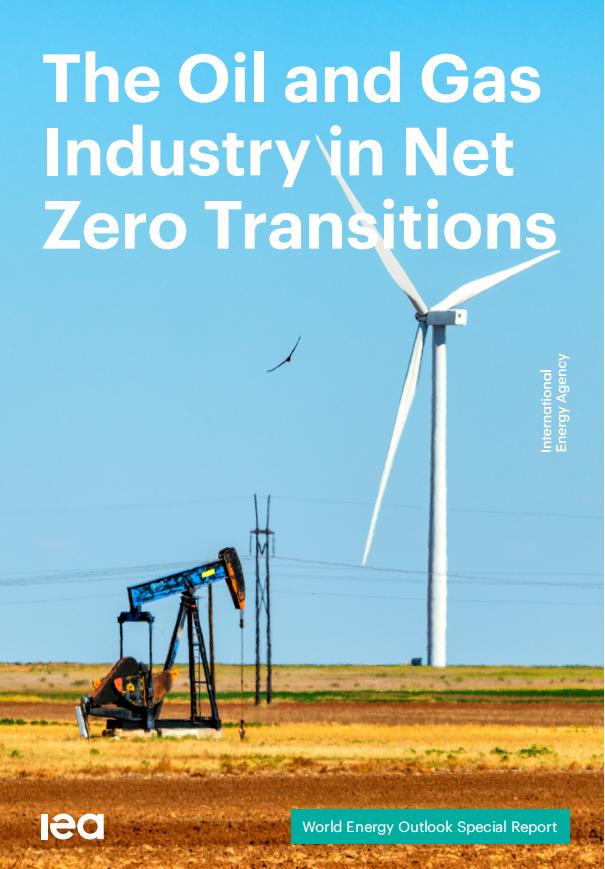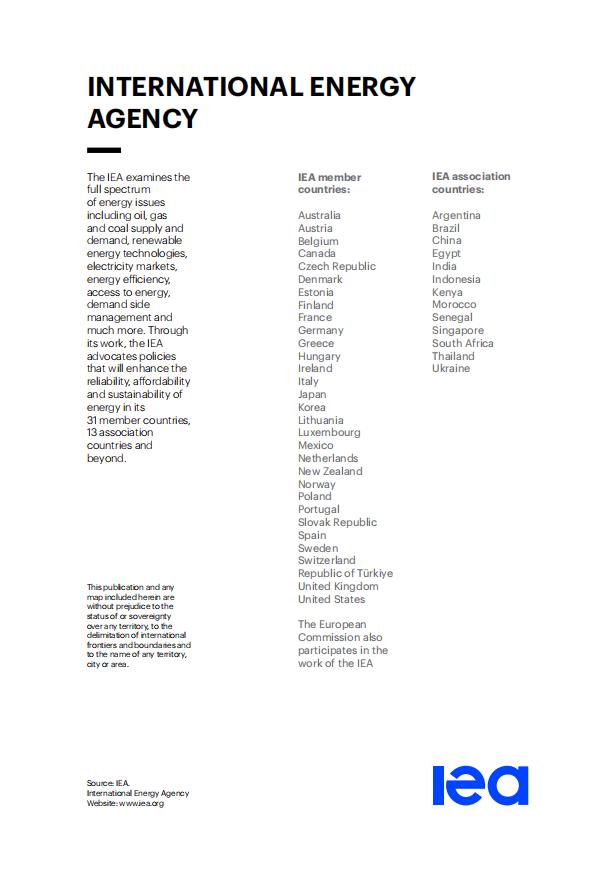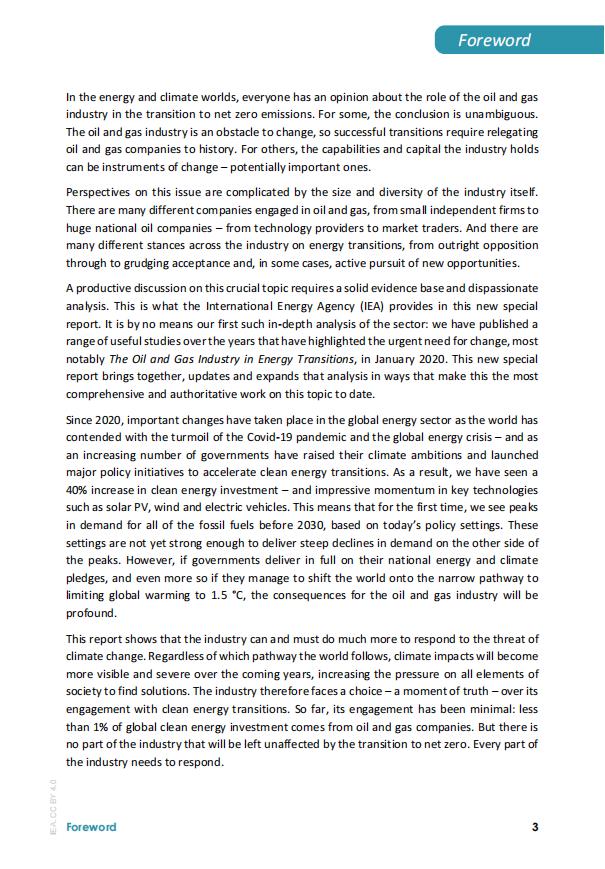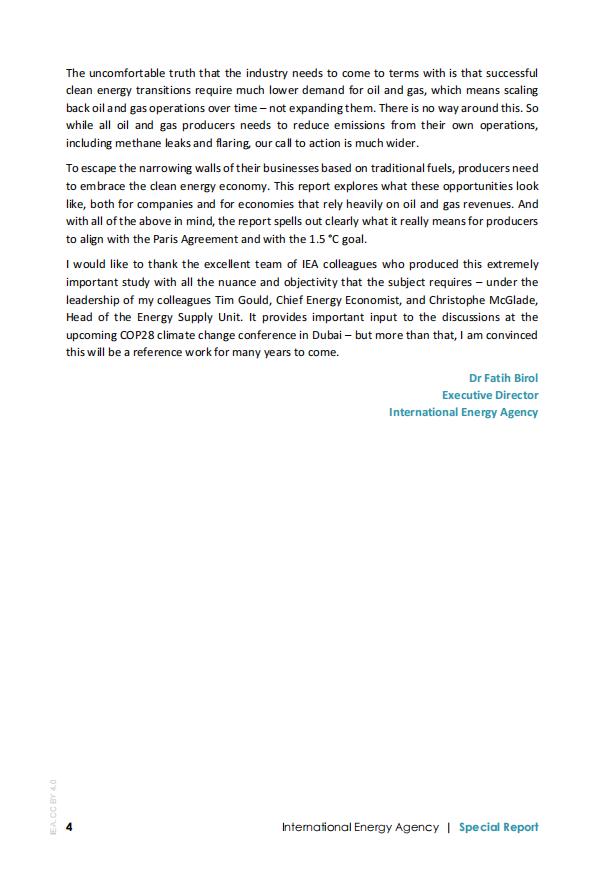In the energy and climate worlds,everyone has an opinion about the role of the oil and gasindustry in the transition to net zero emissions.For some,the conclusion is unambiguous.The oil and gas industry is an obstacle to change,so successful transitions require relegatingoil and gas companies to history.For others,the capabilities and capital the industry holdscan be instruments of change-potentially important ones.
Perspectives on this issue are complicated by the size and diversity of the industry itself.There are many different companies engaged in oil and gas,from small independent firms tohuge national oil companies-from technology providers to market traders.And there aremany different stances across the industry on energy transitions,from outright oppositionthrough to grudging acceptance and,in some cases,active pursuit of new opportunities.
A productive discussion on this crucial topic requires a solid evidence base and dispassionateanalysis.This is what the International Energy Agency(IEA)provides in this new specialreport.It is by no means our first such in-depth analysis of the sector:we have published arange of useful studies over the years that have highlighted the urgent need for change,mostnotably The Oil and Gas Industry in Energy Transitions,in January 2020.This new spedialreport brings together,updates and expands that analysis in ways that make this the mostcomprehensive and authoritative work on this topic to date.
Since 2020,important changes have taken place in the global energy sector as the world hascontended with the turmoil of the Covid-19 pandemic and the global energy crisis-and asan increasing number of governments have raised their climate ambitions and launchedmajor policy initiatives to accelerate clean energy transitions.As a result,we have seen a40%increase in clean energy investment -and impressive momentum in key technologiessuch as solar PV,wind and electric vehicles.This means that for the first time,we see peaksin demand for all of the fossil fuels before 2030,based on today’s policy settings.Thesesettings are not yet strong enough to deliver steep declines in demand on the other side ofthe peaks.However,if governments deliver in full on their national energy and climatepledges,and even more so if they manage to shift the world onto the narrow pathway tolimiting global warming to 1.5 C,the consequences for the oil and gas industry will beprofound.
This report shows that the industry can and must do much more to respond to the threat ofclimate change.Regardless of which pathway the world follows,dimate impacts will becomemore visible and severe over the coming years,increasing the pressure on all elements ofsociety to find solutions.The industry therefore faces a choice-a moment of truth-over itsengagement with clean energy transitions.So far,its engagement has been minimal:lessthan 1%of global clean energy investment comes from oil and gas companies.But there isno part of the industry that will be left unaffected by the transition to net zero.Every part ofthe industry needs to respond.



本文来自知之小站
PDF报告已分享至知识星球,微信扫码加入立享3万+精选资料,年更新1万+精选报告
(星球内含更多专属精选报告.其它事宜可联系zzxz_88@163.com)
